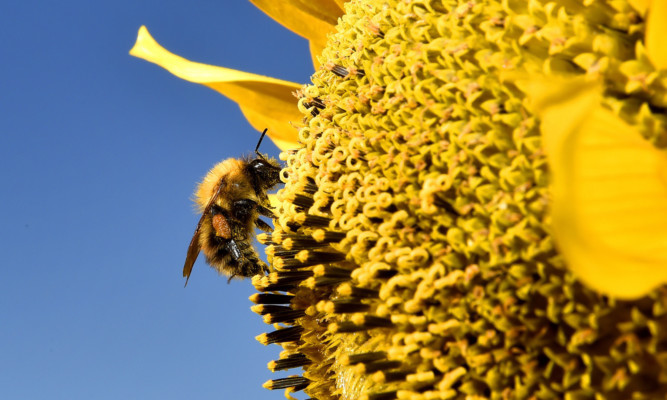Bees are just as addicted to the buzz of caffeine as coffee-mad humans, a study has found.
Scientists discovered the insects made a bee-line for sugar solution laced with the compound.
They also performed “waggle dances” directing their hive mates to the caffeine source.
After a first taste of the coffee drug, the bees kept returning to where they had found it before, even when the supply ran dry.
Researcher Dr Roger Schurch, from the University of Sussex, said: “We were surprised at how, across the board, we saw an effect of caffeine just about everywhere we looked in foraging and recruitment, and all in the direction to make the colony more faithful to the caffeinated source compared to an equal-quality, uncaffeinated source.”
Many plants – not just coffee – have caffeine in their leaves, stems and seeds.
About half of plant families also have some caffeine in their nectar, the sugary flower juice that attracts pollinating insects.
To test the theory that plants have evolved a way to get bees hooked on caffeine, the scientists set up an experiment in which the insects could choose between two feeders placed the same distance from their hive.
Both contained a sugary solution attractive to bees, but only one contained caffeine.
The caffeine not only drew the bees in, but also led them to pass the good news to other members of their colony.
Recruitment dances directing bees to the caffeinated feeder were four times more frequent than those aimed at the plain sugar solution.
The research is reported in the latest issue of the journal Current Biology.
Co-author Dr Margaret Couvillon, also from the University of Sussex, said: “Some plants, through the action of a secondary compound like caffeine that is present in nectar, may be tricking the honey bee by securing loyal and faithful foraging and recruitment behaviours, perhaps without providing the best quality forage.”
The fact that plants using the caffeine ploy might get away with less sweet nectar could affect honey production, the scientists added.
